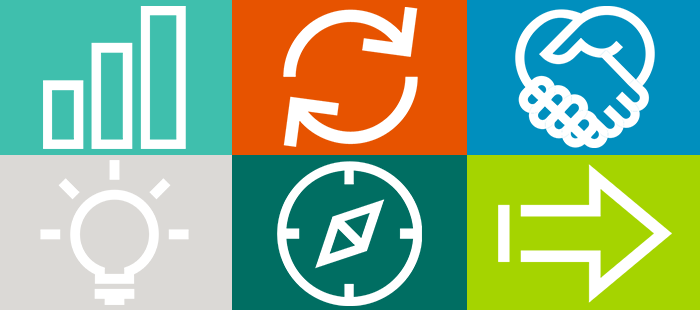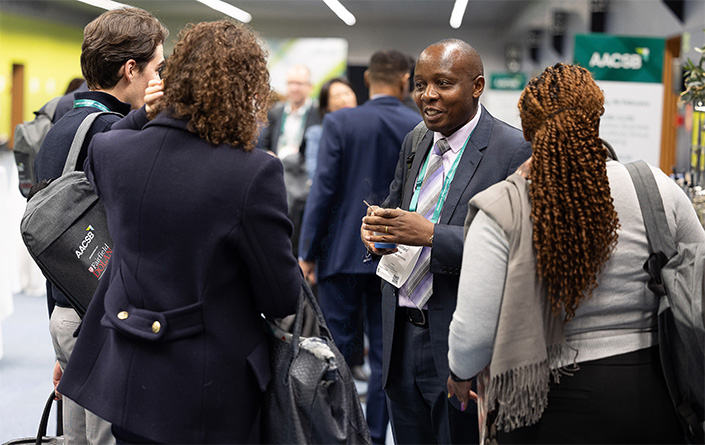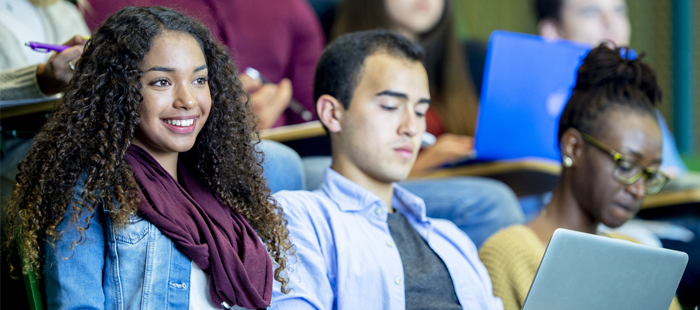Igniting Student Passion for Societal Impact
- Learners continue to drive societal impact as they invest in their education.
- Business educators need to ensure they offer cross-disciplinary learning opportunities that also incorporate critical thinking skills on societal impact topics.
- Helping students understand how they can make an impact on societal challenges can capitalize on the students' passion and purpose.
Transcript
Rohan Nipunge: [0:15] We need to understand that students are already driving societal impact by simply being students. Students are tomorrow's leaders not only when it comes to academia but when it comes to industry, the companies that they work for, the companies that they serve, and our larger planet that we live on. It all starts with education.
One thing I find really valuable in my business-school education is that opportunity to work and think critically across disciplines.
London Clark: [0:31] There's a lot of focus on core competencies, right? You take a marketing class, an operations class, a finance class, a strategy class. Maybe historically, there hasn't been as much cross-disciplinary focus.
[0:45] One thing I find really valuable in my business-school education is that opportunity to work and think critically across disciplines. Specifically, as it comes to social impact and sustainability, the most valuable thing I have been able to learn and practice in business school is making the business case for sustainability.
Nipunge: [1:09] I think the biggest missed opportunity when it comes to business schools is the lack of their ability to capitalize and discover a student's passion and purpose. Passion and purpose are the epicenter of what it means to have and sponsor societal impact.
[1:26] The solution is to offer a cross-disciplinary approach where a variety of topical subject matters are brought into the classroom, especially during the undergraduate track, and exercised upon in years one, two, three, and four.
Passion and purpose are the epicenter of what it means to have and sponsor societal impact.
[1:40] Students taking years out of their lives to educate themselves and tap into their intellectual curiosity and grow upon what's here? That right there is already the foundation and the fundamental to sponsoring societal impacts.
Clark: [1:55] I think there's a lot of different ways that students can make an impact. In fact, when you're in school, whether it be that undergraduate or graduate education, you really have something that you don't necessarily have once you're in the workforce. That's time.
[2:10] There are so many important problems and massive global issues that we're facing as a society. It can be overwhelming to decide how, or if you as an individual, can make an impact. What I would say for a student who's at the beginning of this journey, just explore. Talk to a lot of people while you're in school.
It's about finding your specific value, your specific strength or superpower that's going to allow you to really drive that forward.
[2:32] Then trust your gut. Go towards those issue areas that you're really passionate about. For me, that was environmental-and-climate change. I've spent two years really just diving into that in all the different ways possible.
[2:46] Once you have your issue area that you're focused on, think about your own individual strengths, what you're good at, and how you might be able to apply that to the issue. There's a lot of different ways that you can make an impact on a particular problem.
[3:01] It's about finding your specific value, your specific strength or superpower that's going to allow you to really drive that forward. It's going to look different for every person.





